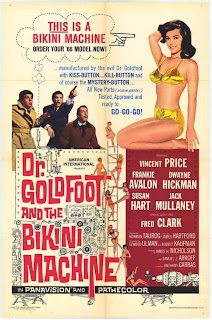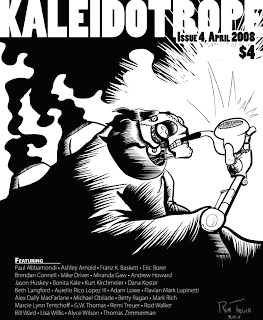 The Scoop:
The Scoop:What an odd little movie.
What starts out as just another quickie about misunderstood teens in the usual "Blackboard Jungle"-knockoff mode of AIP soon takes a turn for the surreal in this story of a female teacher (Louise Lewis) at an all-girls school who uses her vampire powers to prey on the student body, led by Sandra Harrison.
This is another Herman Cohen production, made to capitalize on the success of "I Was a Teenage Werewolf" and "I Was a Teenage Frankenstein." It doesn't hold up as well in comparison to those two films, but "Blood of Dracula" has it's own charms, mostly in the way the weird horror elements are so awkwardly grafted onto the standard teen cheapie formula. Sometimes the changes are so swift, you can get whiplash if you're not careful. Thinly veiled lesbianism abounds, giving the clean-cut image of '50s lovesick teens a mind-bending twist. And, as if that wasn't enough, bland crooner Jerry Blaine interrupts all the sexual tension, hypnotism and vampire stalkings to sing his hit song "Puppy Love."
Despite all of its shortcomings in terms of acting and stale plot, this is one you don't want to miss.
(And, sorry to disappoint you, but Dracula doesn't actually appear in this movie.)
Best Bit:
This exchange, prompted by the visit by Jerry Blaine: "We pass him around like a jug of water on a lifeboat." / "Yeah. One swallow for every girl."
Side Note:
Unfortunately, this was Harrison's only starring role. The rest of her filmography consists of an unbilled role in "Desire Under the Elms" and appearances in single episodes of the television shows "The Adventures of Superman" and "Burke's Law."
Companion Viewing:
"I Was a Teenage Werewolf" (1957) and "Girls' Town" (1959).
Links:
IMDb.
Horrorfind.
1,000 Misspent Hours.
Herman Cohen: The Man and His Movies.
Take a Look:
This trailer captures the whiplash-style change of genre pretty accurately:










